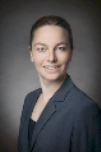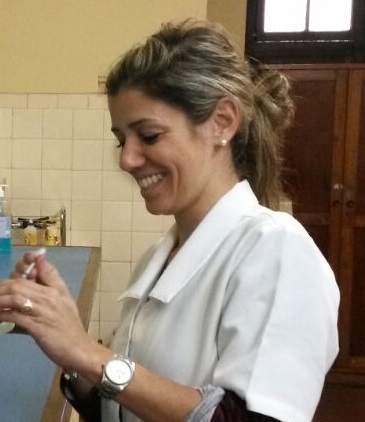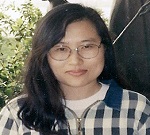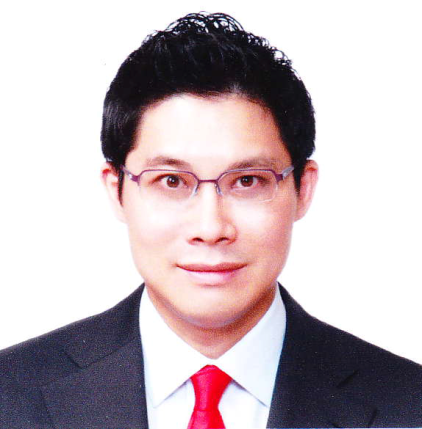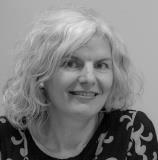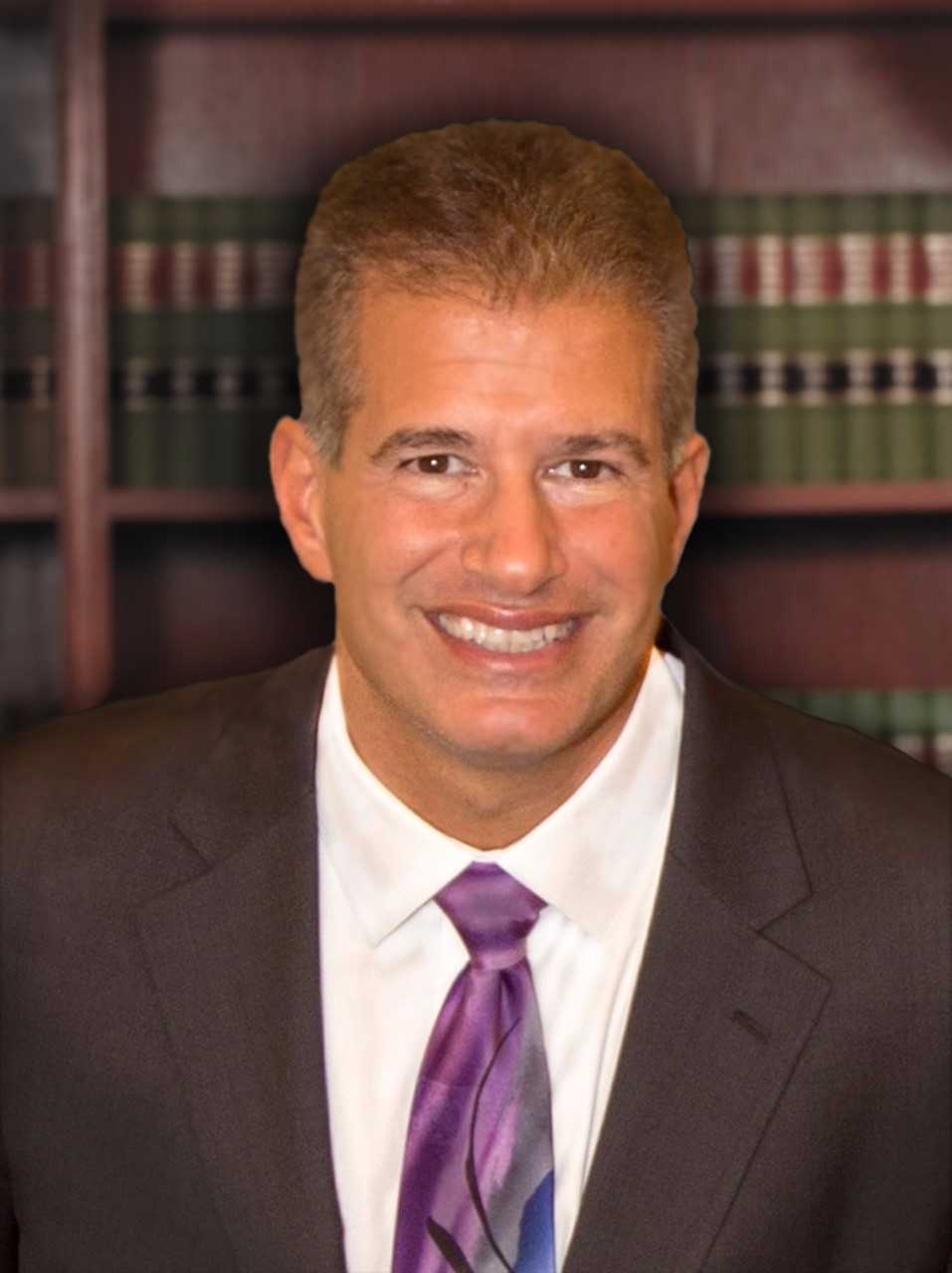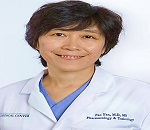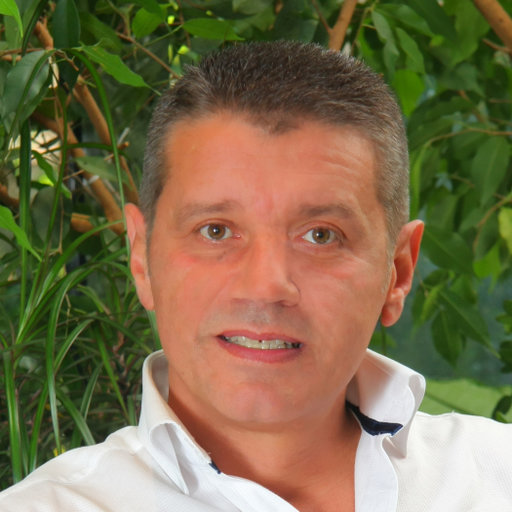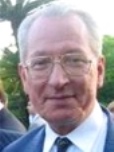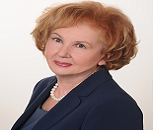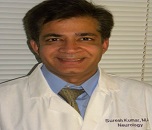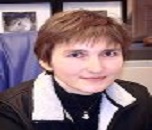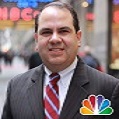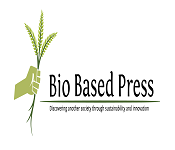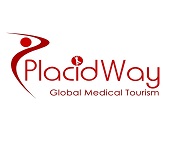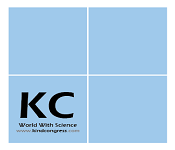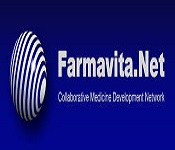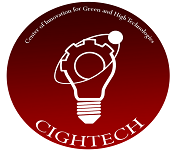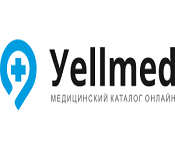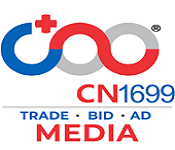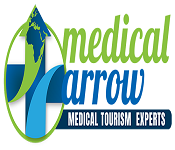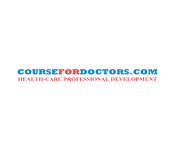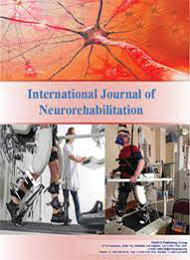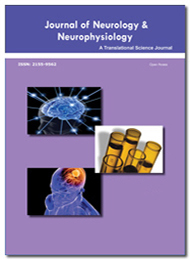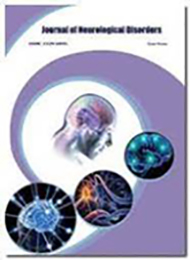Theme: Interdisciplinary Approach for Innovation & Invention in Neuro Science Research
Cognitive Neuroscience 2022
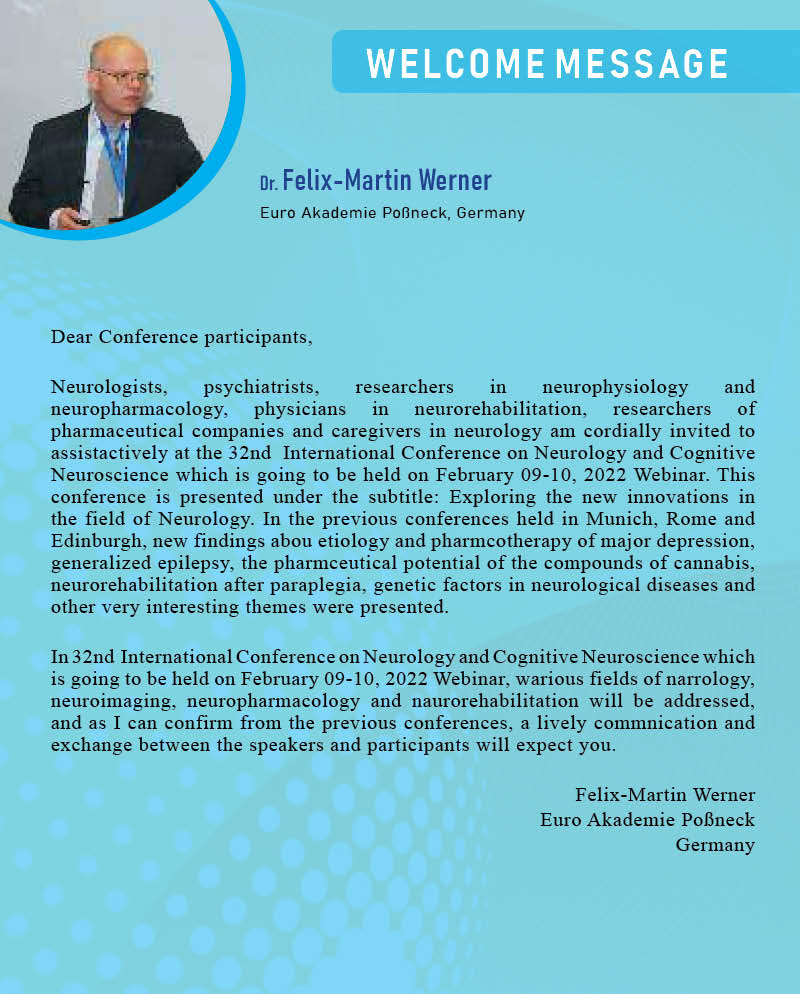
Conference Series llc LTD, take immense pleasure in inviting all the participants from all over the world to attend our Conference entitled “32nd International Conferences on Neurology and Cognitive NeuroScience (Cognitive NeuroScience 2022)” to be held during February 09-10, 2022 Webinar
Cognitive NeuroScience is organized around the theme “Interdisciplinary Approach for Innovation & Invention in Neuro Science Research”
COGNITIVE NEUROSCIENCE 2022 will give a perfect platform for sharing and developing innovative ideas on the latest developments and future perspectives in the field of Neurology for the treatment of various Neurological disorders. Attending the COGNITIVE NEUROSCIENCE 2022 is an investment in your career growth. It’s the best way to express your passion towards the Neurology research and update your skills and enhance your knowledge
COGNITIVE NEUROSCIENCE 2022 participants include Professors, Researchers, Physicians, Business Delegates, Scientists, students all over the world. The goal of the COGNITIVE NEUROSCIENCE is to provide you with a rare opportunity to build on what you already know in the research and development of new therapies and techniques and accelerate efforts to enhance health and well-being.
Significance and Scope:
According to International survey of country Resources about 90% of population is suffering from brain disorders. The provision collected information from several experts’ availability of neurological services is much needed. Many neurological disorders results in considerable morbidity where special attention is paid to Rehabilitation and disability. Mostly neurological resources grossly less in world
WHO has produced report that collaboration with several non-governmental organization including Alzheimer’s disease international, European Parkinson disease Association, International bureau for Epilepsy, World headache alliances and World federation neurology
Young Scientist Benefits:
Our conferences provide best Platform for your research through oral presentations.
Share the ideas with both eminent researchers and mentors.
Young Scientist Award reorganization certificate and memento to the winners
Young Scientists will get appropriate and timely information by this Forum.
Platform for collaboration among young researchers for better development
Award should motivate participants to strive to realize their full potential which could in turn be beneficial to the field as whole.
Top Neurophysiology Conferences in Europe:
Who will attend?
Neurologists, Neurosurgeons, Neurophysiologists, psychiatrists, physiatrists, Pharmacists, Research scientists, Neurology Organizations and societies, Pharmaceutical companies, Neuro and CNS drug Industries, Neuroscience associations & foundations, Professors and Students from Academia in the study of Neurology and Neurophysiology and researchers who utilize neurophysiological techniques and knowledge in diagnosing and treating nervous system disorders
We truly believe that the COGNITIVE NEUROSCIENCE 2022 in Rome will be a highly rewarding international event for everyone and will bring enhancement and Neuro industrial development, which will contribute to improving quality of life
COGNITIVE NEUROSCIENCE 2022 welcomes all attendees, participants, students and exhibitors from all over the world. We are truly delighted to invite you to attend the “32nd International Conference on Neurology and Cognitive Neuroscience", which is going to be held February 09-10, 2022 London, | UK.
COGNITIVE NEUROSCIENCE 2022 aims to congregate the Neurophysiologists, Neurologists, Neurosurgeons, psychiatrists, physiatrists, Pharmacists, Research scientists, Neurology Organizations and societies, Professors and Students from Academia across the globe to provide an international forum for the dissemination of original research results, new ideas and practical development experiences. We invite you to join us at the COGNITIVE NEUROSCIENCE 2022, where you will be sure to have a meaningful experience with scholars from around the world
For more details please visit- https://neurocognitivedisorders.neurologyconference.com/
Importance and Scope:
Neurological disorders become a growing threat, due to the demographic change and the resulting increase of elderly populations in Europe. It is estimated that in 2040, 14 million Europeans will be affected by Alzheimer’s disease that will cost about EUR 140 billion in care per year. Mental health and research on neuropsychiatric diseases were priorities, with more than EUR 280 million invested since 2007. Brain diseases account for 35% of the overall disease burden and cost European society almost euro 400 billion per year.
The European pharmaceutical industry spent approximately €3.3 billion on brain research per year, corresponding to 79% of the total funding for brain research in Europe. Research on neurodegenerative diseases, a subset of neurological diseases, was supported with EUR 401 million, with priority on Alzheimer’s disease and Parkinson’s disease. Research on neuropsychiatric diseases such as depression or schizophrenia has been supported with EUR 283 million. In Europe overall, neurological damage accounts for 40% of people who are severely disabled and who require daily help.
Neurophysiology continues to advance, with the development of new applications such as brainstem mapping, spinal cord mapping, monitoring for position-related nerve injuries, and many others.
Conference Highlights:
- Cognitive Neuroscience
- Dementia
- Vascular Dementia
- Neurodegeneration And Aging Disorders
- Neuropsychiatry
- Neurology Nursing
- Neuro Pharmaceutics
- Neurotherapeutics
- Pathogenesis Of Cognitive Disorders
- Cognition And Behaviour
- Consciousness
- Neuro Oncology
- Neuro Surgery
- Challenges In Neurosurgery
Why to attend???
With members from around the world focused on learning about Neurology and Neurophysiology, this is your single best opportunity to reach the largest assemblage of participants from the scientific community. Conduct demonstrations, distribute information, meet with eminent personalities, and make a splash with latest research innovations at this outstanding event. World-renowned speakers, the most recent Diagnostic techniques, tactics, and the newest updates in the field of Neurology and Neurophysiology are hallmarks of this conference
Major Neurology and Neurophysiology Associations around the Globe
- American Clinical Neurophysiology Society
- American Physiological Society
- American Board of Psychiatry and Neurology (ABPN)
- American Neurological Association (ANA)
- American Academy of Neurology
- American Society of Neuroimaging
- American Association of Neurological Surgeons
- Child Neurology Society
- European Federation of Neurological Societies
- Indian Academy of Neurology
- Neurological Society of India
Target Audience:
Neurologists, Neurosurgeons, Neurophysiologists, psychiatrists, physiatrists, Pharmacists, Research scientists, Neurology Organizations and societies, Pharmaceutical (drug design and discovery) companies, Neuro and CNS drug Industries, Neuroscience associations & foundations, Professors and Students from Academia in the study of Neurology and Neurophysiology and researchers who utilize neurophysiological techniques and knowledge in the diagnosis and management of patients with disorders of the nervous system.
Top Universities around the globe
- Dalhousie University
- Leiden University- Neither land
- Temple University USA
- University Oklahoma
- Boston Coll USA
- Florida International University
- University California – Davis
- University Sheffield
- University Manchester
- University of Nottingham
- Cardiff University
- University of Toronto – Canada
Major Hospitals around the Globe
All around the globe there are 6000 hospitals working on Neurology
Some of them among them are:
- Johns Hopkins Hospital
- World Brain Center Hospital
- Duke University Hospital
- Edward Hospital
- Munson Medical Center
Top companies around the globe:
- Janssen Pharmaceuticals
- Pfizer
- Eisai
- Novartis Pharmaceutical Corporation
- Actinogen Limited
- Alector LLC
- AlzProtect SAS
- TauRx Therapeutics Ltd
- Pacific Northwest Biotechnology
- Tautatis Incorporated
- Forest Laboratories
Glance at Market share:
The Americas is estimated to be the largest market for Neurophysiology needles and electrodes owing to the high incidence of brain disorders like Alzheimer's disease in the US. The neurophysiology needles and electrodes market will grow at a modest CAGR of close to 4% by 2020. Few companies involved are Biomed Products, Bionen Medical Devices, Blacrock Microsystems, Cognionics, Dymedix Diagnostics, HydroDot, Jari Electrode Supply, NR Sign, Optima Medical, R&D Medical Electrodes, Technomed Europe and Unimed Electrode Supplies. Neurophysiology Electrodes in Europe market, especially in Germany, UK, France, Italy, Spain and Russia.
On behalf of Organizing Committee invites all the participants from all over the world to attend the prestigious Scientific Conference on Cognitive Neuroscience during February 09-10, 2022 which encompass Keynote presentations, Oral Presentation, Poster presentations and Exhibitions
Cognitive Neuroscience 2022 is a global platform to discuss and learn about early detection as well as treatment, care based on Professional standards, and increased research to accomplish cure for all cognitive Disorders. The conference includes leading international experts in Neurocognitive Disorders hospitals specialists, doctors, research scholars and general practitioners form all over the world.
Neurocognitive disorders can affect memory, concentration, Knowledge, language, view, and social cognition. They interfere extremely with a person’s everyday independence in Major Neurocognitive Disorder, but not so in Minor Neurocognitive Disorder.
Track 1: COGNITIVE NEUROSCIENCE
Cognitive neuroscience is the scientific field that is concerned with the study of the biological processes and aspects that underlie cognition, with a specific focus on the neural connections in the brain which are involved in mental processes. It addresses the questions of how cognitive activities are affected or controlled by neural circuits in the brain. Cognitive neuroscience is a branch of both neuroscience and psychology, overlapping with disciplines such as physiological psychology, cognitive psychology, and neuropsychology. Cognitive neuroscience relies upon theories in cognitive science coupled with evidence from Neuropsychology, and Computational modelling.
Related: Neurology Conferences | Neurology Congress | Neurocognitive disorders Conferences | Cognitive Neuroscience conferences | Neuroscience Conferences
Related Associations:
National Institute of Mental Health (NIMH), National Alliance on Mental Illness (NAMI), National Institute of Neurological disorders and Stroke (NINS), American Academy of Neurological and Orthopaedic Surgeons (AANOS), American Academy of Neurology (AAN).
Track 2: DEMENTIA
Dementia is usually caused by degeneration in the cerebral cortex, the part of the brain responsible for thoughts, memories, actions, and personality. Death of brain cells in this region leads to the cognitive impairments that characterise dementia. Causes of dementia include head injury, brain tumours, infections, hormone disorders, metabolic disorders, hypoxia, nutritional deficiencies, drug abuse, or chronic alcoholism. Unfortunately, most disorders associated with dementia are progressive, degenerative and irreversible. The two major degenerative causes of dementia are Alzheimer's disease and vascular dementia Multiple neuropathologic processes may underlie dementia, including both neurodegenerative diseases and vascular disease. Dementia is most common in elderly individuals, with advancing age being the strongest risk factor.
Related: Neurology Conferences | Neurology Congress | Neurocognitive disorders Conferences | Cognitive Neuroscience conferences | Neuroscience Conferences
Related Associations:
Dementia Society of America (DSA), The Association for Frontotemporal Degeneration (AFD), International Huntington’s Association (IHA), European Huntington Association (EHA), American Parkinson Disease Association (APDA)
Track 3: VASCULAR DEMENTIA
Vascular dementia is the broad term for dementia associated with problems of circulation of blood to the brain. Vascular brain injury (VBI) is widely recognized as a common cause of cognitive impairment (vascular cognitive impairment) culminating in vascular dementia. Most vascular dementia cases are sporadic and share risk factors with peripheral vascular disease. Vascular dementia is not a single disease; it is a group of syndromes relating to different vascular mechanisms.
Related: Neurology Conferences | Neurology Congress | Neurocognitive disorders Conferences | Cognitive Neuroscience conferences | Neuroscience Conferences
Related Associations:
Vascular Dementia Stroke Association (VDSA), Vascular Dementia Alzheimer Association (VDAA), National Stroke Association (NSA), Lewy Body Association (LBA), American Parkinson Disease Association (APDA).
Track 4: NEURODEGENERATION AND AGING DISORDERS
A Neurodegenerative disease includes Alzheimer's, Huntington's, Parkinson's, and the prion maladies, are genetically and pathologically linked to aberrant protein aggregation. AD, the most common type of dementia, is typically sporadic; however, rare mutations in several genes confer early onset. Release of the aggregation-prone peptides Aβ1–40 and Aβ1–42 by endoproteolysis of the amyloid precursor protein (APP) is associated with AD through an unknown mechanism that appears to be associated with Aβ aggregation. Typically, individuals who carry AD-linked mutations present with clinical symptoms during their fifth or sixth decade, while sporadic cases appear after the seventh decade. Although aggregation-mediated neurodegeneration emerges late in life, it is unclear whether this late onset is mechanistically linked to the aging process. Amyotrophiclateralsclerosis (ALS) is a progressive neurodegenerative disorder of the motor neurons in the spinal cord, brainstem, and motor cortex.
Related: Neurology Conferences | Neurology Congress | Neurocognitive disorders Conferences | Cognitive Neuroscience conferences | Neuroscience Conferences
Related Associations:
American Chronic Pain Association (ACPA), Foundation for Peripheral Neuropathy (FPN), Neuropathy Association, Muscular Dystrophy Association (MDA), Charcot-Marie-Tooth Association (CMTA), American Society for Peripheral Nerve
Track 5: NEUROPSYCHIATRY
Neuropsychiatry is a branch of medicine that deals with mental disorders attributable to diseases of the nervous system. It preceded the current disciplines of psychiatry and neurology. However, psychiatry and neurology subsequently split apart and are typically practiced separately. Nevertheless, Neuropsychiatry has become a growing subspecialty of psychiatry and it is also closely related to the fields of neuropsychology and Behavioral Neurology, addresses clinical problems of cognition and/or behaviour caused by brain injury or brain disease. The division’s neuropsychiatry works collaboratively with the department’s neurologists to treat and manage the emotional and cognitive symptoms of neurological diseases. Such symptoms can include depression, anxiety, psychosis, hallucinations, and/or cognitive loss. Treatment can include psychotherapy and/or medication.
Related: Neurology Conferences | Neurology Congress | Neurocognitive disorders Conferences | Cognitive Neuroscience conferences | Neuroscience Conferences
Related Associations:
American Neuropsychiatric Association (ANA), International Neuropsychiatric Association (INA), World Psychiatric Association (WPA), Mood Disorders Society of Canada (MDSC), American Academy of Neurology (AAN)
Track 6: NEUROLOGY NURSING
Neurological Nursing is a very challenging nursing specialty dealing with assessment, nursing diagnosis, and management of many neurological disorders for which nurses provide patient care. They are expected to work at health care clinics, hospitals and Intensive rehabilitation and brain injury units assisting complex Neuro surgeries, or with procedures in Neurointerventional Radiology and even in Clinic research areas. This includes trauma, brain injuries, stroke, seizures, tumours, headaches, infections, and aneurysms, as well as a host of other neurological complexities.
Related: Neurology Conferences | Neurology Congress | Neurocognitive disorders Conferences | Cognitive Neuroscience conferences | Neuroscience Conferences
Related Associations:
American Association of Neuroscience Nurses (AANN), Neuroscience Nursing (NN), Canadian Association of Neuroscience Nurses (CANN), British Association of Neuroscience Nurses (BANN), American Association of Nurse Practitioners (AANP)
Track 7: NEURO PHARMACEUTICS
A drug used to treat Neuropsychiatric, Neuropsychological, or Nervous-system disorders. Neuro-pharmaceutics focuses on identification of therapeutic targets, and then translating those discoveries into drug and therapy development. Research in Neuropharmaceutics includes: drug discovery for limiting high frequency activity in Epilepsy; drug transport proteins that control drug distribution to target tissues; spinal delivery of analgesics to chronic pain treatment; drugs for the treatment of depression, bipolar disorder, and schizophrenia; intranasal delivery methods for the treatment of Alzheimer’s disease; development of strategies to evaluate therapeutics on preclinical models of Alzheimer’s and Parkinson’s disease; anti-atherogenic and anti-diabetic therapies for the prevention and treatment of AD and other age-related dementias; and development of analgesic agents for chronic pain.
Related: Neurology Conferences | Neurology Congress | Neurocognitive disorders Conferences | Cognitive Neuroscience conferences | Neuroscience Conferences
Related Associations:
The Brain Association for Psychopharmacology (BAP), American Association for Clinical Psychopharmacology (AACP), American Psychiatric Association (APA), American College of Neuropsychopharmacology (ACNP) , American Society for Pharmacology and Experimental Therapeutics (ASPET), American Academy of Neurology (AAN)
Track 8: NEUROTHERAPEUTICS
It is an older term for the treatment of disorders that affect the nervous system which psychological, psychiatric, and nervous disorders. Neurotherapeutics is a quarterly peer-reviewed medical journal covering research on experimental treatments of neurological disorders. There is a profound increase in the diagnostics procedure and drug discovery in the field of Neurology. It includes Stem cells and treatment, Nerve injury and repair Clinical Case report, Neurogenesis, cell and gene based approach and Neurotransmitter release and cell repair.
Related: Neurology Conferences | Neurology Congress | Neurocognitive disorders Conferences | Cognitive Neuroscience conferences | Neuroscience Conferences
Related Associations:
American Society for Experimental Neurotherapeutics (ASEN), Neurologist Association, National Institute of Mental Health (NIMH), National Institute of Neurological Disorders and Stroke (NINDS), National Center for Complementary and Alternative Medicine (NCCAM).
Track 9: PATHOGENESIS OF COGNITIVE DISORDERS
The classic Neuro pathological signs of Cognitive disorders are amyloid plaques and neurofibrillary tangles. Plaques consist largely of the protein fragment beta-amyloid. This fragment is produced from a "parent" molecule called amyloid precursor protein. Tangles consist of tau, a protein normally involved in maintaining the internal structure of the nerve cell. While tau is normally modified by phosphorylation, or the attachment of phosphate molecules, excessive phosphorylation appears to contribute to tangle formation and prevents the protein from carrying out its normal functions. Oxidative stress, or damage to cellular structures by toxic oxygen molecules called free radicals, is also regarded as a pathology characteristic of Alzheimer’s. Individuals with Alzheimer’s typically experience brain inflammation. Many of the oldest patients with Alzheimer’s show signs of cerebrovascular disease in addition to "classic" Alzheimer's neuropathology.
Related: Neurology Conferences | Neurology Congress | Neurocognitive disorders Conferences | Cognitive Neuroscience conferences | Neuroscience Conferences
Related Associations:
National Multiple sclerosis society (NMSS), Lewy Body Dementia Association (LBDA), Association of prior stroke with Cognitive function and Cognitive impairment (ASCCI), Vascular Dementia –Alzheimer’s Association (VDAA)
Track 10: COGNITION AND BEHAVIOUR
When nerve cells in the brain are damaged, they can no longer send information to each other in the normal way. This causes changes in the person's behaviour and abilities. Individuals with a moderate-to-severe brain injury often have problems in basic cognitive (thinking) skills such as paying attention, concentrating, and remembering new information and events. They may think slowly, speak slowly and solve problems slowly and confused easily when normal routines are changed or when things become too noisy or hectic around them. They may have speech and language problems, such as trouble finding the right word or understanding others. After brain injury, a person may have trouble with all the complex cognitive activities necessary to be independent and competent in our complex world. The brain processes large amounts of complex information all the time that allows us to function independently in our daily lives. This activity is called executive function because it means being the executive or being in charge of one's own life.
Related: Neurology Conferences | Neurology Congress | Neurocognitive disorders Conferences | Cognitive Neuroscience conferences | Neuroscience Conferences
Related Associations:
Schizophrenia International Research Society (SRIS), American Delirium Society (ADS), Anxiety and Depression association of America (ADAA), National Association of Alcohol, Drugs and Dependency (NAADD), Canadian Mental Health Association (CMHA)
Track 11: CONSCIOUSNESS
To understand the relationship between conscious mental states and brain activity, we must make progress in three distinct areas. To be conscious is to be awake (rather than in a dreamless sleep, or unconscious) and so we must understand the neural mechanisms associated with changes in level of consciousness. But when we are awake, our conscious states are individuated by their content, which has a particular subjective feel. We therefore need to understand the neural underpinnings of conscious content, and how such representations in the brain are distinguished from merely unconscious processing. And finally humans (and possibly some other animals) are self-aware and able to make introspective judgments about their perception and action. Understanding the neural correlates of such metacognitive ability is also required.
Related: Neurology Conferences | Neurology Congress | Neurocognitive disorders Conferences | Cognitive Neuroscience conferences | Neuroscience Conferences
Related Associations:
American Society for Experimental Neurotherapeutics (ASEN), Neurologist Association, National Institute of Mental Health (NIMH), National Institute of Neurological Disorders and Stroke (NINDS), National Center for Complementary and Alternative Medicine (NCCAM).
Track 12: NEURO ONCOLOGY
Neuro-oncology is the study of brain and spinal cord neoplasms, many of which are (at least eventually) very dangerous and life-threatening (astrocytoma, glioma, glioblastoma multiforme, ependymoma, pontine glioma, and brain stem tumors are among the many examples of these.
Related: Neurology Conferences | Neurology Congress | Neurocognitive disorders Conferences | Cognitive Neuroscience conferences | Neuroscience Conferences
Related Associations:
American Society for Experimental Neurotherapeutics (ASEN), Neurologist Association, National Institute of Mental Health (NIMH), National Institute of Neurological Disorders and Stroke (NINDS), National Center for Complementary and Alternative Medicine (NCCAM).
Track 13: NEURO SURGERY
Neurosurgery, or neurological surgery, is the medical specialty concerned with the prevention, diagnosis, surgical treatment, and rehabilitation of disorders which affect any portion of the nervous system including the brain, spinal cord, peripheral nerves, and extra-cranial cerebrovascular system.
Related: Neurology Conferences | Neurology Congress | Neurocognitive disorders Conferences | Cognitive Neuroscience conferences | Neuroscience Conferences
Related Associations:
American Society for Experimental Neurotherapeutics (ASEN), Neurologist Association, National Institute of Mental Health (NIMH), National Institute of Neurological Disorders and Stroke (NINDS), National Center for Complementary and Alternative Medicine (NCCAM).
Track 14: CHALLENGES IN NEUROSURGERY
Neurosurgery is a specialized area of neurology, which is the diagnosis and treatment of diseases and injuries affecting the brain, spinal cord an nervous system. Many earn high incomes for their expertise, but such benefits are accompanied by a number of day-to-day challenges. The daily life of Neurosurgeons is extremly complex and demanding, with rapidly changing tasks and responsibilities, assesing and diagnosing the patients. Without these eminent people the field of Neurology and the treatment for the disorders wouldn't be as bright as now.
Related: Neurology Conferences | Neurology Congress | Neurocognitive disorders Conferences | Cognitive Neuroscience conferences | Neuroscience Conferences
Related Associations:
American Society for Experimental Neurotherapeutics (ASEN), Neurologist Association, National Institute of Mental Health (NIMH), National Institute of Neurological Disorders and Stroke (NINDS), National Center for Complementary and Alternative Medicine (NCCAM).
Track 15: COGNITIVE REHABILITATION
There are 2 main techniques in cognitive rehabilitation remediation and compensatory approaches. CR is designed to stimulate new learning, or relearning, of cognitive tasks, and thus, to improve domains of deficit. Compensatory approaches seek to make improvements in the patient’s functioning by avoiding areas of impairment and recruiting other intact cognitive domains or by creating a supportive external environment.
Related: Neurology Conferences | Neurology Congress | Neurocognitive disorders Conferences | Cognitive Neuroscience conferences | Neuroscience Conferences
Related Associations:
American Society for Experimental Neurotherapeutics (ASEN), Neurologist Association, National Institute of Mental Health (NIMH), National Institute of Neurological Disorders and Stroke (NINDS), National Center for Complementary and Alternative Medicine (NCCAM).
Track 16: MENTAL HEALTH OR MENTAL DISORDERS
Mental health deals with absence of mental illness or psychological wellbeing. If someone in psychological state it shows functioning at a behavioral adjustment and satisfactory level of emotional. From the positive psychology, mental health may include an individual's ability for life, and create the balance between psychological resilience and life activities.
Related: Neurology Conferences | Neurology Congress | Neurocognitive disorders Conferences | Cognitive Neuroscience conferences | Neuroscience Conferences
Related Associations:
American Society for Experimental Neurotherapeutics (ASEN), Neurologist Association, National Institute of Mental Health (NIMH), National Institute of Neurological Disorders and Stroke (NINDS), National Center for Complementary and Alternative Medicine (NCCAM).
Track 17: ROBOTIC NEUROSURGERY
Robotic or Robot-Assisted Surgery integrates advanced computer technology with the experience of the skilled surgeons. This technology provides the surgeon with a 10x magnified, high-definition, 3D-image of the body's intricate anatomy. The surgeon uses controls in the console to manipulate special surgical instruments that are smaller, as well as more flexible and manoeuvrable than the human hand. The robot replicates the surgeon's hand movements, while minimizing hand tremors. The surgeon thus can operate with enhanced precision, dexterity and control even during the most complex procedures. Robotic surgery is the recent new advanced technique in the field of Neurosurgery.
Related: Neurology Conferences | Neurology Congress | Neurocognitive disorders Conferences | Cognitive Neuroscience conferences | Neuroscience Conferences
Related Associations:
American Society for Experimental Neurotherapeutics (ASEN), Neurologist Association, National Institute of Mental Health (NIMH), National Institute of Neurological Disorders and Stroke (NINDS), National Center for Complementary and Alternative Medicine (NCCAM).
Track 18: NEUROSCIENCE
Neuroscience is a multidisciplinary science that is concerned with the study of the structure and function of the nervous system. It encompasses the evolution, development, cellular and molecular biology, physiology, anatomy and pharmacology of the nervous system, as well as computational, behavioural and cognitive neuroscience.
Related: Neurology Conferences | Neurology Congress | Neurocognitive disorders Conferences | Cognitive Neuroscience conferences | Neuroscience Conferences
Related Associations:
American Society for Experimental Neurotherapeutics (ASEN), Neurologist Association, National Institute of Mental Health (NIMH), National Institute of Neurological Disorders and Stroke (NINDS), National Center for Complementary and Alternative Medicine (NCCAM).
Track 19: NEUROCOGNITIVE DISORDERS
Neurocognitive disorders are characterized by decline from an attained level of cognitive functioning mainly when physical changes occurs in brain, such as after neurological and mental illness, drug use, or brain injury. The two major degenerative causes of dementia are Alzheimer's disease and vascular dementia. Dementia is usually caused by degeneration in the cerebral cortex, the part of the brain responsible for thoughts, memories, actions, and personality. Death of brain cells in this region leads to the cognitive impairments that characterise dementia. Vascular dementia is the broad term for dementia associated with problems of circulation of blood to the brain.
Related: Neurology Conferences | Neurology Congress | Neurocognitive disorders Conferences | Cognitive Neuroscience conferences | Neuroscience Conferences
Related Associations:
American Psychological Association (APA), Vestibular Disorders Association (VDA), American Psychological Society ( APS), American Payroll Association ( APA ), Association for Psychological Science (APS)
Track 20: MIGRAINE
Migraine is a neurological condition that can cause multiple symptoms. It's frequently characterized by intense, debilitating headaches. Symptoms may include nausea, vomiting, difficulty speaking, numbness or tingling, and sensitivity to light and sound. Migraines often run in families and affect all ages.
Related: Neurology Conferences | Neurology Congress | Neurocognitive disorders Conferences | Cognitive Neuroscience conferences | Neuroscience Conferences
Related Associations:
American Psychological Association (APA), Vestibular Disorders Association (VDA), American Psychological Society ( APS), American Payroll Association ( APA ), Association for Psychological Science (APS)
Advantages of Participating at our conference:
- As an add on advantage the Speaker & Abstract pages created in Google on your profile under your name would get worldwide visibility
- Our robust online publicity attracts 20000+ users and 60000+ views to our Library of Abstracts which brings worldwide exposure to the researchers and speakers participate in our conferences
- All the conference participants can earn up to 16-18 CME Credits by participating at our Neurology and Cognitive NeuroScience Conference scheduled at London,UK.
- To attain professional development we offer our participants a chance to earn up to 21 CPD Credits authorized by CPD Standards Office, UK by participating at our Neuroscience Conferences.
- All the conference participants will be awarded with IOCM Certification.
- All the conference participants will have an unique opportunity to participate at One on One Meeting with Eminent Speakers
- A Unique opportunity to hear what the global researchers are talking about at our Keynote sessions by world’s most eminent researchers in the field of Neuroscience.
- Top Industries Representation of Industrial Leaders, where you get a great opportunity to meet and discuss with the Industrial Leaders in person
- Thought provoking Symposia’s
- Workshops on Carrier Development
- Preconference workshops in all major countries
- Nominations for Best Poster Award
- Outstanding Young Researcher Award
- Group Registration benefits
Benefits of Participation | Speaker
- Explore the best in Cutting edge Research
- Worldwide acknowledgment of Researcher’s profile
- Obtain professional development credits
- Your presence and talk will be recorded and hosted on YouTube and Vimeo which in turn will gain potential value to your research profile.
- Make Lasting connections at Networking and Social Events
- We provide unique convergence of Networking, Learning and Fun into a single package
- An opportunity to give One page advertisement in abstract book and flyers distribution which eventually gets 1 Million views and add great value to your research profile
- Learn beyond your field of interest, a change to know more about the new topics and research apart from your core subject
Benefit of Participation | Sponsor
- Worlds No1 Platform to show case Neurology and Neuroscience Products
- Exposure to the international atmosphere will increase the odds of getting new business
- Opportunity to showcase the new technology, new products of your company, and/or the service your industry to a broad international audience
- Attain with an exceptional format in showcasing the products and services and to gain the potential clients for the future business prospects
- Our Neurology Conference in the One and only location to reach the top customers
- Make new connections and fostering potential partnerships
- Increase your business by lead generation through our conference participants.
- Build a successful business takes a lot of time, effort and drive, so it’s always good to have a network of colleagues and associates to draw energy from people who share a similar drive and objective.
- Flip side of learning new things is relearning classic techniques. Neuroscience conferences create opportunities for greater focus and reflection that could help you take your business to the next level.
- Benchmarking key strategies for business and moving it forward
- Get answers to your business questions and challenges from credible individuals at our conference
- Exposure and Networking Opportunity with the various top decision makers of the respective organizations, will eventually grow your business in Global market
- Get to know more about your competitors are first-hand, learn more about their businesses, and discover their strengths and weaknesses, all of which can add to your business’s competitive edge.
- Encounter new vendors and suppliers for your business
- Real Benefits in New business - Many Organizations make deals and sign contracts at our Neurology Conference
- We offer you the Website visibility to more than 35K visitors in less than 6 months
- Promotional logo of your organisation at our conference banner, website and other proceedings, branding and marketing material
- Hosting session slots, poster awards, recognition in opening ceremony and complimentary registrations, exhibition/workshop booth, low-budget options.
Benefit of Association for Collaborators
- No one in the world have this huge visitors towards Neuroscience, these is the best platform to show case your society.
Create long-lasting relationships with the peers
- Promotional content and Logo of your Association at our conference banner, website and other proceedings, branding and marketing material will increase your subscribers/Members number by 20 %.
- Our Website visibility to your Organization page can give a great impact for your association in the Global Market.
- Your representatives can network with key conference delegates to update their knowledge and understanding of your organization and services.
- Details will be added to the conference press release where the details will be shared to < 100000 outlets
- Details will be incorporated in all conference promotional materials which will be distributed to Hospitals, Universities, Society and Researchers
Benefits of Participation | Delegate
- Helps to meet Experts & Influencers Face to Face.
- Opportunities to meet researchers and experts of same field and share new ideas
- Can help to know New Tips & Tactics
- Professional Development – Elevate your knowledge and Skills
- Conference attendance inspires, rejuvenates, and energizes delegates
- Your participation at our conference will be helpful for a new approach and ideology that can be utilized for the extending the outcome of Companies or Industries.
- Enjoy the alluring city environment where the conference is being held.
- Raise your profile by being well-known
Conference Highlights
- Cognitive Neuroscience
- Dementia
- Vascular Dementia
- Neurodegeneration and Aging Disorders
- Neuropsychiatry
- Neurological Nursing
- Neuro Pharmaceutics
- Neurotherapeutics
- Pathogenesis of Cognitive disorders
- Cognition and Behaviour
- Consciousness
- Neuro-Oncology
- Neuro Surgery
- Challenges in Neurosurgery
- Cognitive Rehabilitation
- Mental health or Mental Disorders
- Robotic Neurosurgery
- Neuroscience
- Neurocognitive Disorders
- Migraine
To share your views and research, please click here to register for the Conference.
To Collaborate Scientific Professionals around the World
| Conference Date | February 09-10, 2022 | ||
| Sponsors & Exhibitors |
|
||
| Speaker Opportunity Closed | Day 1 | ||
| Poster Opportunity Closed | Click Here to View | ||
Useful Links
Special Issues
All accepted abstracts will be published in respective Our International Journals.
- Journal of Neurology & Neurophysiology Open Access
- Journal of Neurological Disorders
- International Journal of Neurorehabilitation
Abstracts will be provided with Digital Object Identifier by






